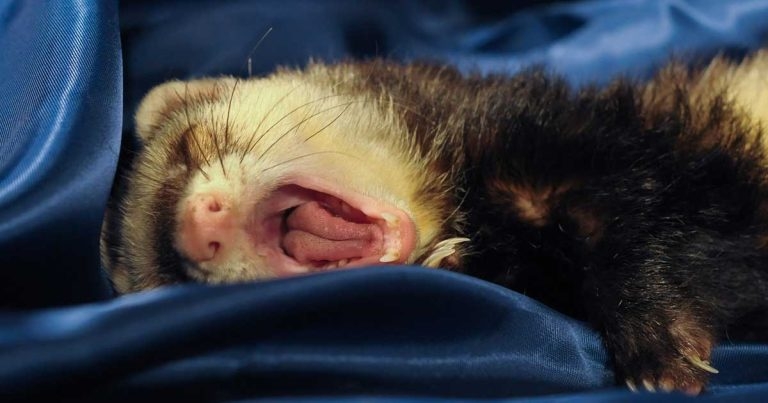2 Dec 2022
While 93% of owners believed the animal can experience boredom, those who doubted ferrets get bored provided fewer environmental enrichments, such as bedding, toys and shelters.

Most owners believe ferrets experience boredom – but those doubting the animals’ capability to be bored were less likely to provide the right environmental stimulation, RVC researchers have found.
Research by the college has revealed the extent pet ferret owners are aware of, and understand, ferret boredom.
While 93% believe the species can experience boredom and that housing them with other ferrets, human interaction and exploring new items can help prevent it, doubting ferret owners provided fewer types of environmental enrichment for their pets.
The research builds on previous RVC research that showed how lack of stimulation and effective habitats caused seeking and excessively inactive behaviour.
Those behind the latest body of work, published in Animals, hope it can be used to raise awareness further among pet owners to ensure ferrets get appropriate environmental enrichments.
A total of 621 responses to an online questionnaire were analysed by the researchers, and while owners who understood they could get bored provided an average of 13 types of enrichment – such as bedding, toys and shelters – those who did not perceive their boredom only provided 11 types.
Charlotte Burn, senior lecturer in animal welfare and behaviour science at the RVC, said: “Boredom is an unusual emotion because it causes both restless activity and drowsy inactivity, as individuals try and fail to find stimulation.
“This really ties in with what ferret owners recognised as signalling boredom in their pets, because they described the ferrets alternating between scratching at their enclosures, as if trying to escape, and then sleeping too much.
“That combination of behaviour also gives us some insight into how distressing it can be for captive animals to have nothing to do day after day, so it really matters that owners provide enough enrichment to occupy their pets.”
Alice Dancer, RVC student and lead author of the paper, said: “It’s a really encouraging sign for pet ferret welfare that most owners believe ferrets can experience boredom. We’ve all experienced boredom ourselves and can testify that it’s an unpleasant emotion when we can’t avoid it.
“Understanding how we can recognise boredom – and, crucially, how we can prevent it in our pets – is incredibly important for improving their welfare.
“With the help of pet ferret owners from around the world, we are a step further in understanding a bored ferret’s behaviour, and some of the ways we can try to prevent it.”